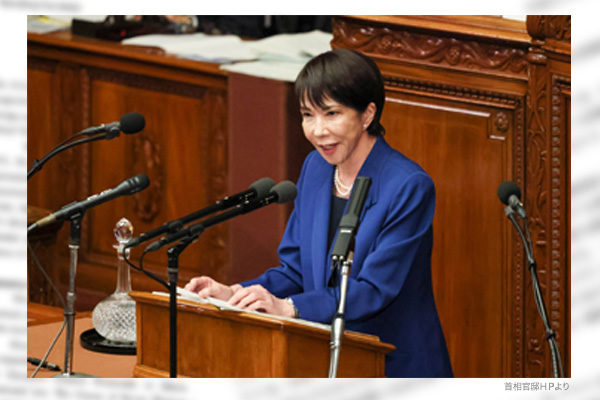On October 21, when Prime Minister Sanae Takaichi gave written instructions to cabinet ministers upon the inauguration of the new cabinet, Chief Cabinet Secretary Minoru Kihara received a five-point directive. The third item instructed the chief cabinet secretary to consider enhancing the government’s overall intelligence command structure in cooperation with relevant ministers. This was probably the first time since the end of World War II that a Japanese prime minister had directed their chief cabinet secretary to consider enhancing the intelligence command structure.
A coalition agreement calls for creating a National Intelligence Agency
What exactly would be considered? In fact, a coalition agreement signed between the Takaichi-led Liberal Democratic Party and the Japan Innovation Party on October 20 included “intelligence policy” as the fifth item among twelve agreed policy points.
According to the agreement, (1) the Cabinet Intelligence and Research Office and the Director of Cabinet Intelligence would be upgraded, and a National Intelligence Agency and a Director of National Intelligence would be established during the ordinary Diet session next year. In order to place the policy and intelligence divisions on equal footing within the realm of national security, the National Intelligence Agency and its director would rank with the National Security Secretariat and the secretary general of the National Security Secretariat.
In parallel, this year, (2) the ruling coalition would commence studies about legislation related to intelligence and anti-espionage, including a basic law, a foreign agents registration law, and a lobbying disclosure law.
So, what would the National Intelligence Agency do? In Japan, government agencies such as the Ministry of Foreign Affairs, the Ministry of Defense, the National Police Agency, and the Public Security Intelligence Agency have intelligence divisions that now operate separately from each other. Additionally, since the enactment of the Act on the Protection of Specially Designated Secrets, intelligence shared between Japan and other liberal democracies has increased sharply, undoubtedly improving the quality of intelligence reaching the Prime Minister’s Office, I hear. However, the Cabinet Intelligence and Research Office, which compiles precious intelligence collected in this way, remains structurally weak.
That is why there is now a proposal to elevate the Cabinet Intelligence and Research Office into the National Intelligence Agency as a command center to aggregate, analyze, and assess intelligence received from domestic intelligence bodies as well as from allied and like-minded countries, and use it effectively in national policymaking.
Under this command center reporting directly to the prime minister, the plan is (3) to create an independent foreign intelligence agency, or a Japanese version of the U.S. Central Intelligence Agency, by the end of fiscal 2027, (4) to establish an intelligence officer training institution that is cross-agency within the intelligence community, and (5) to promptly draft and enact legislation related to intelligence and anti-espionage as the legal basis for intelligence officers’ activities.
Public understanding and support are required
Carrying out such a sweeping reform, however, will require, above all, public understanding and support.
In fact, in countries such as the United States and Canada, governments formulate and publish a document known as the National Intelligence Strategy to carefully explain what intelligence activities are, why they are necessary, and how these activities are related to citizens’ human rights and freedom of speech. Why not formulate a National Intelligence Strategy in Japan as well, in conjunction with the coming update of the three security documents, including the National Security Strategy?
Michio Ezaki is a member of the Planning Committee at the Japan Institute for National Fundamentals and a specially-appointed professor at Reitaku University.


